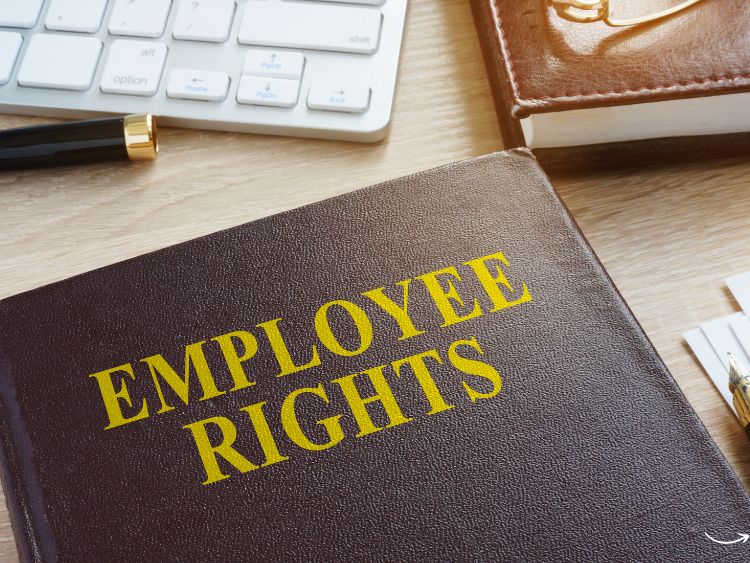Imagine juggling a demanding job while battling a serious health issue like drug addiction. It’s no walk in the park. Unfortunately, for many employees, this is their reality. Drug addiction is a challenging condition, and when it intersects with the workplace, it raises numerous questions about rights, responsibilities, and support systems. This article delves into the intricate web of drug addiction employee rights, offering a comprehensive overview of what employees and employers need to know.
Understanding Drug Addiction as a Disability
First off, it’s crucial to understand that drug addiction can be considered a disability under certain laws. The Americans with Disabilities Act (ADA) offers protection to employees who are undergoing treatment for drug addiction. This means that if an employee is in recovery and not currently using illegal drugs, they may be entitled to reasonable accommodations at work. The focus here is on supporting recovery and preventing discrimination.
Rights of Employees with Drug Addiction
Right to Confidentiality
One of the cornerstone rights is confidentiality. Employees struggling with addiction often fear stigma and discrimination, but laws like the ADA and the Health Insurance Portability and Accountability Act (HIPAA) ensure their medical information remains private. Employers are required to keep this information confidential, fostering a safer environment for employees to seek help.
Right to Reasonable Accommodations
The ADA mandates that employers provide reasonable accommodations to employees with disabilities, including those recovering from drug addiction. This could involve flexible working hours to attend counseling sessions or temporary reassignment to less stressful duties. The key is that these accommodations should not impose an undue hardship on the business.
Right to Non-Discrimination
Employees have the right to a workplace free from discrimination. This means that employers cannot fire, demote, or refuse to hire someone simply because they have a history of drug addiction. Discriminatory practices are illegal and can result in severe penalties for employers.
Right to Medical Leave
Under the Family and Medical Leave Act (FMLA), eligible employees are entitled to take up to 12 weeks of unpaid leave per year for serious health conditions, including drug addiction. This leave can be used for rehabilitation or recovery without the fear of losing one’s job.
Responsibilities of Employers
Providing a Safe Work Environment
Employers are responsible for maintaining a safe and healthy workplace. This includes having policies in place to address drug use and ensuring that employees feel supported in seeking help. Clear communication and training programs can help foster a supportive environment.
Implementing Drug-Free Workplace Policies
While supporting employees, employers also need to balance this with maintaining productivity and safety. Implementing a drug-free workplace policy can help achieve this balance. Such policies should clearly outline the consequences of drug use at work, the support available for employees seeking help, and the procedures for drug testing.
Offering Employee Assistance Programs (EAPs)
Many employers provide Employee Assistance Programs (EAPs) to support employees dealing with personal issues, including drug addiction. These programs offer confidential counseling, referrals to treatment facilities, and follow-up services. EAPs are a valuable resource for both employees and employers.
Challenges and Misconceptions
Misconception: Drug Addiction Equals Current Illegal Drug Use
A common misconception is that all drug addiction involves the current use of illegal drugs. However, many employees may be in recovery and not currently using drugs. It’s important for employers to differentiate between active drug use and recovery, as the latter is protected under the ADA.
Challenge: Balancing Support and Productivity
Employers often face the challenge of supporting employees while maintaining productivity. It’s a delicate balance, but with clear policies and open communication, it’s possible to create a supportive environment that also meets business needs.
FAQs about Drug Addiction Employee Rights
Can an employer fire an employee for drug use?
Yes, an employer can fire an employee for drug use if it violates the company’s drug-free workplace policy. However, employees who are in recovery and not currently using illegal drugs are protected under the ADA.
What should an employee do if they need help for drug addiction?
Employees should reach out to their HR department or use their company’s Employee Assistance Program (EAP) if available. They have the right to seek help confidentially and should be informed about their rights under the ADA and FMLA.
Are employers required to accommodate employees undergoing treatment?
Yes, employers are required to provide reasonable accommodations to employees undergoing treatment for drug addiction, as long as it does not impose an undue hardship on the business.
Can an employee take medical leave for drug addiction treatment?
Yes, under the FMLA, eligible employees can take up to 12 weeks of unpaid leave per year for serious health conditions, including drug addiction treatment.
Conclusion
Navigating the complexities of drug addiction employee rights can be challenging for both employees and employers. However, understanding the laws and protections in place is crucial for fostering a supportive and productive work environment. Employees have the right to confidentiality, reasonable accommodations, non-discrimination, and medical leave. Employers, on the other hand, must balance these rights with maintaining a safe and efficient workplace.
Creating a supportive work environment not only helps employees recover and thrive but also benefits the overall productivity and morale of the company. By implementing clear policies, offering support through EAPs, and ensuring open communication, employers can help employees navigate their recovery journey with dignity and respect.
Authoritative Links (Plain URLs)
By understanding and respecting drug addiction employee rights, we can create workplaces that are not only legally compliant but also compassionate and supportive. After all, everyone deserves a fair chance at recovery and a fulfilling professional life.
